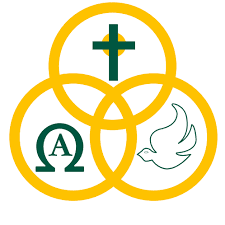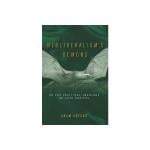According to a poll conducted by Arizona Christian University and reviewed by George Barna, only 16% of American Christians believe in the Trinity. Only 11% of Americans, Christian and non-Christian, believe in the Trinity.
If true, and I think that depends at least somewhat on how the question was asked, that’s sad news. But it is not surprising to me. Until I explain the doctrine of the Trinity and its biblical basis (e.g., John 14-16) and the alternatives (heresies), many of my students say they do not believe in the Trinity. I often wonder about that. Do they really DENY it? There can be a difference between “believing” and “denying.” Some people will say they do not believe a doctrine, for example, simply because they do not understand it.
The 20th century witnessed a renaissance of theological interest in the Trinity. Numerous theological books, both scholarly and popular, have been written about it. I wrote one myself. (Or I should say co-wrote one with a friend.) It’s entitled simply The Trinity (Eerdmans).
Perhaps the best general explanation of the Trinity in book form is the one written by Alister McGrath entitled simply Understanding the Trinity. It may be out of print now, but I’m sure many used copies are available from used book sellers such as abebooks.com.
Many critics have complained that the Trinity is simply too complex to understand. I disagree. Perhaps some versions of THE DOCTRINE of the Trinity are too difficult for most people to understand. I’m thinking, for example, of Juergen Moltmann’s The Trinity and the Kingdom of God. A very challenging academic tome! But the simple doctrine of the Trinity—that the God of the Bible, the Christian God, is three “persons” (not individual selves as Western culture now thinks of that word) eternally bound together, inseparably, by one “substance” (essence).
When Bible-believing Christians question the truth of the Trinity, the doctrine of the Trinity, I ask them to consider all the alternatives: monarchianism (only the Father is God), modalism (the persons are just manifestation, not persons), and tritheism (there are three gods). All do violence to the biblical witness to God. Monarchianism’s main form is Arianism, the ancient idea that the Son of God is a creature, not equal with the Father as to substance or externality, and that the Holy Spirit is a force, a power, of God, not a person.
A problem I have noticed is that too many churches, perhaps most, do not teach doctrine anymore. Another problem is that if they do, their explanations of the Trinity are faulty at best (e.g., H2O, one substance that can exist in three forms).
Again, however, I would love to know what exactly, precise question(s) the poll takers asked. A poorly crafted poll question can easily result in distorted statistics. Did they ask one or more theologians to help them craft the question(s)? I’ve never been asked by any poll takers to help them craft a theological question and I have been near (colleague of) people who take polls about religion, including theology.
How crucial is belief in the Trinity to Christian identity? Can someone be a Christian and understand and reject the simple doctrine of the Trinity? I will say yes, especially if their denial is based on a misunderstanding, which I think is the case with most Oneness Pentecostals. (I know they will disagree, so please don’t respond with an attempted explanation of the Oneness view of God. From a trinitarian perspective, “Oneness” theology is mistaken. I know Oneness people don’t think it is.)
However, if someone is a true monarchian, as is the case with Arianism, I have trouble considering a knowledgeable monarchian a Christian. (I’m not question his or her salvation which is known only to God.)
*Note: If you choose to comment, make sure your comment is relatively brief (no more than 100 words), on topic, addressed to me, civil and respectful (not hostile or argumentative), and devoid of pictures or links.*


















